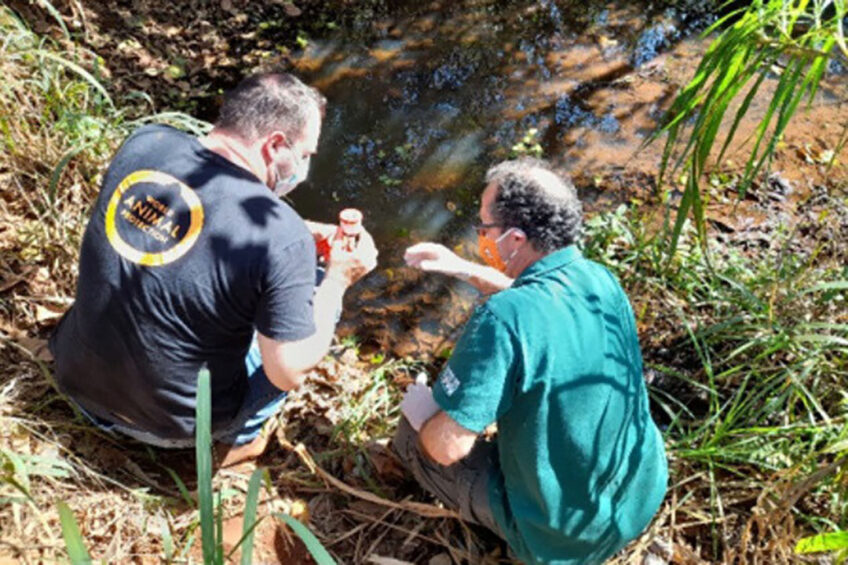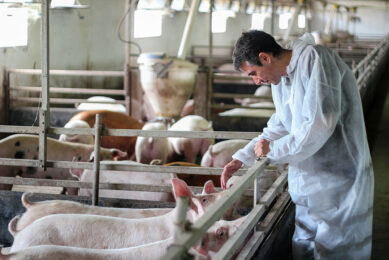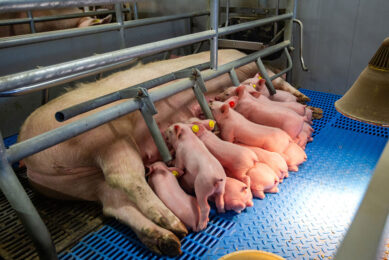Antibiotic resistant genes found near pig farms in 5 countries

The World Animal Protection recently released a paper that concludes the environment around pig farms in 5 nations (Brazil, Thailand, US, Spain and Canada) has genes that favour increased antibiotic resistance.
The report “Multi-resistant bacteria: in a river next to you” details the same situation in Brazil in the cities of Castro, Palotina and Toledo, in Paraná state, around the end last year.
The veterinarian and coordinator of Welfare of World Animal Protection, Daniel Cruz, explains that antimicrobial resistance has been growing a lot. “We are aware of this global problem of bacterial resistance and the data presented in all the surveys confirm that it is a worldwide phenomenon that requires concern,” he says.
Responsible use of antibiotics
These identified antibiotic resistant genes (ARG) cause resistance to very common drugs used to treat important infectious diseases in people. For the organisation, the solution is to use antibiotics in production animals responsibly – for therapeutic purposes only.
Livestock: Over 60% of antibiotics produced
According to the study, more than 60% of the antibiotics produced worldwide are used in farm animals. “Excessive and indiscriminate use can accelerate the development of multi-resistant bacteria in animals and the environment,” says the document.
Risk to humans
Antibiotic resistance genes are the building blocks of multidrug-resistant bacteria. They create antimicrobial resistance, the resistance of recurring bacteria to antibiotics important to people.
“It is alarming that some genes found in our research confirm resistance to antibiotics important to human health and, therefore, constitute a major concern not only for the World Health Organization, but for society as a whole,” points out Jacqueline Mills, Global Chief of Agriculture of the World Animal Protection.
ARG in water samples
Water samples, carried out by research in Thailand, the United States, Canada and Spain, indicate that it is likely to be discharge of ARGs in swine manure (manure and urine) created by intensive industrial farms.
The proof is that the presence of ARGs is higher in samples collected from downstream watercourses. In other words, the water after swine farms is different from upstream samples.
Spain: the research revealed ARG´s levels as 200 times higher than the reference values and these groundwaters supply water to humans in some regions.
Central Thailand: found bacteria resistant to third-generation cephalosporins, fluoroquinolones, or colistin, as well as co-trimoxazole, gentamicin, amikacin, trimethoprim-sulfamethoxazole, or amoxicillin.
United States: researchers found widespread evidence of ARGs conferring resistance to tetracycline and streptomycin. In addition, ARGs were also found conferring resistance to macrolides, cephalosporins, fluoroquinolones, and possibly carbapenem antibiotics.
Canada: research documents what World Animal Protection believes to be the first discovery in Manitoba of ARGs that confer resistance to cephalosporins, fluoroquinolones, macrolides and tetracycline. The results reflect similar conclusions elsewhere.
 Beheer
Beheer








 WP Admin
WP Admin  Bewerk bericht
Bewerk bericht